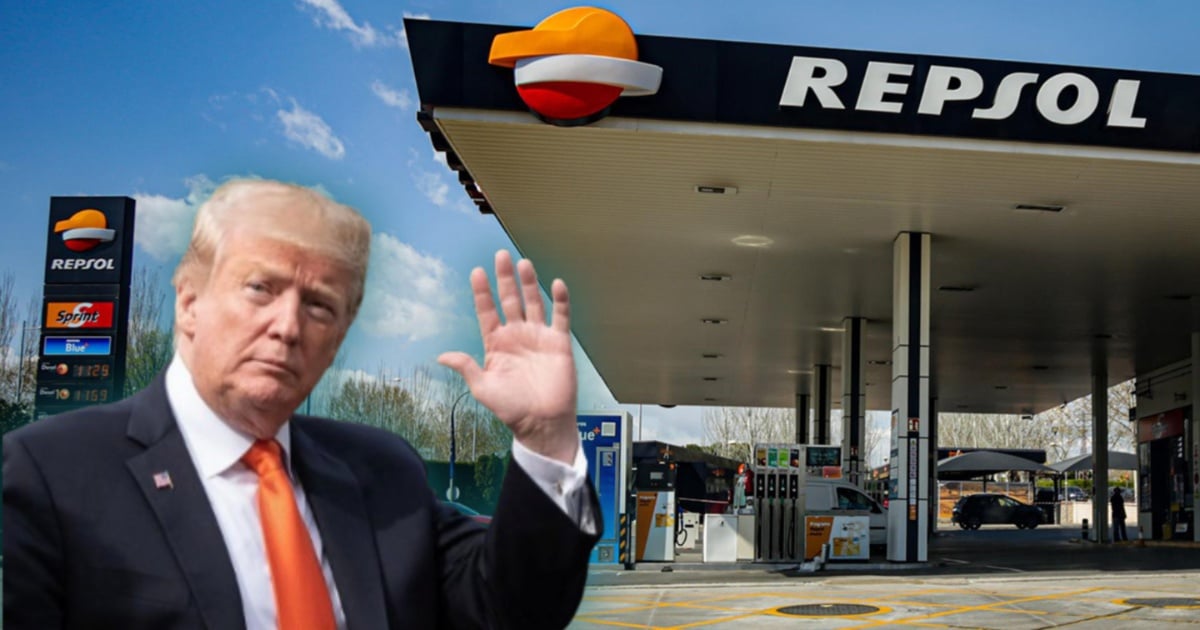The Trump administration for companies associated with the Venezuelan state oil company PDVSA, as confirmed by the agency EFE based on statements that emerged in U.S. media.
Among the companies notified by the Trump administration regarding the revocation of their permits to export crude oil and derivatives from Venezuela are the Spanish Repsol, the American Global Oil Terminals, the Italian Eni, the French Maurel & Prom, and the Indian Reliance Industries.
The Italian oil company Eni stated to The Financial Times that on Sunday it was notified by U.S. authorities that it was no longer allowed to be reimbursed for the gas it produces in Venezuela through the oil supplies provided by PDVSA.
“Eni always operates in full compliance with the international sanctions framework,” the company stated, asserting that they would inquire in Washington about ways to continue operating without being impacted by the sanctions.
Global Oil Terminals, a commercial company owned by tycoon Harry Sargeant III, stated that it had also been ordered by the U.S. government that it would need to liquidate its licenses to export products from the Maduro regime.
According to the company’s president, the licenses must be dissolved by May 27, and all payments to Venezuelan entities must be made by this Wednesday.
Permissions were granted during the administration of Joe Biden. The suspension of the exemptions that allow these companies to conduct business with the Venezuelan state oil company PDVSA are the latest measures adopted by the Trump administration to pressure Maduro, who began a third term in January despite widespread evidence of fraud in the July 2024 elections.
Last week, the U.S. president said he would impose a 25% tariff on all imports from any country that buys oil or gas from Venezuela.
In a post on Truth Social, Trump justified the measure by stating that Nicolás Maduro’s government has sent “deliberately and deceitfully” tens of thousands of criminals to the United States, including members of the Tren de Aragua, a group designated as a “Foreign Terrorist Organization.”
The announcement comes amid rising tensions between the two countries. In early February, Venezuela and the United States reached an agreement for the deportation of Venezuelan migrants, with Caracas committing to accept all repatriated individuals.
However, in recent weeks, the process has become complicated, with the government of Maduro refusing to accept some flights with deportees, which has led the Trump administration to warn of severe sanctions if Venezuela does not comply with the agreed terms.
Specifically, one of them was the revocation of the “concessions” granted by the former president, Joe Biden, to the Maduro regime regarding oil transactions and electoral conditions signed on November 26, 2022.
Frequently Asked Questions about the Revocation of Oil Licenses to Venezuela by Trump
Trump revoked the licenses in order to pressure Nicolás Maduro’s regime, as he believes that the Venezuelan government has not fulfilled agreements related to oil transactions and electoral conditions signed in 2022. Furthermore, Trump accuses the regime of collaborating with drug trafficking and sending criminals to the United States.
The affected companies are Repsol, Global Oil Terminals, Eni, Maurel & Prom, and Reliance Industries. These companies will no longer be able to export crude oil and derivatives from Venezuela due to the revocation of licenses initiated by the Trump administration.
The revocation could force Venezuela to seek new markets to offset the loss of exports through these companies. This could benefit allied countries like Cuba, China, and India, as Venezuela might increase exports to these strategic partners.
In addition to revoking licenses, Trump has announced the imposition of a 25% tariff on countries that purchase oil or gas from Venezuela. These actions are part of a strategy to increase pressure on Maduro’s regime and limit its ability to generate revenue through oil sales.
Maduro has described the measures as an “unfounded attack” and has stated that the revocation of licenses impacts open communications for the repatriation of Venezuelans deported from the U.S. Additionally, the Venezuelan government has denied links to drug trafficking and the Tren de Aragua, allegations that have been the basis for some of Trump’s actions.
